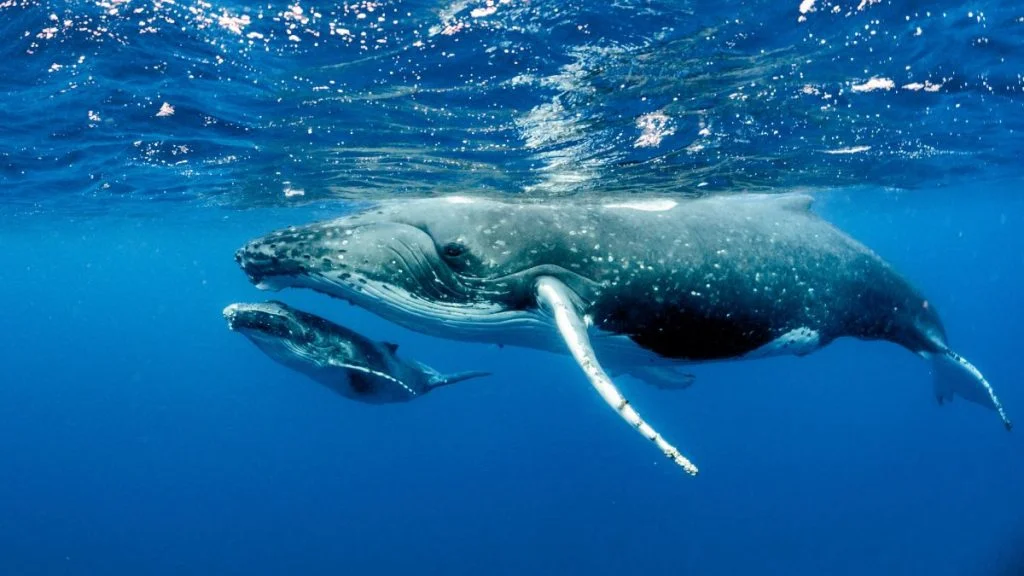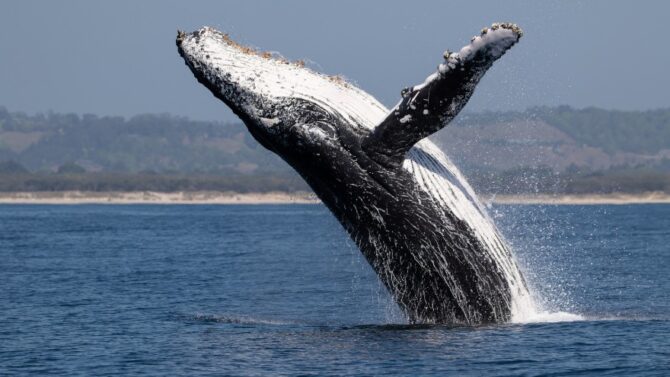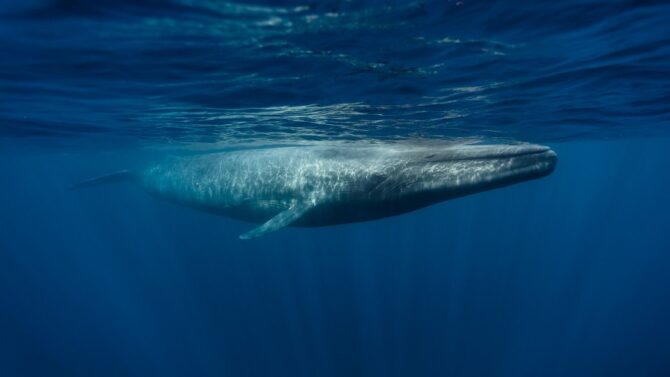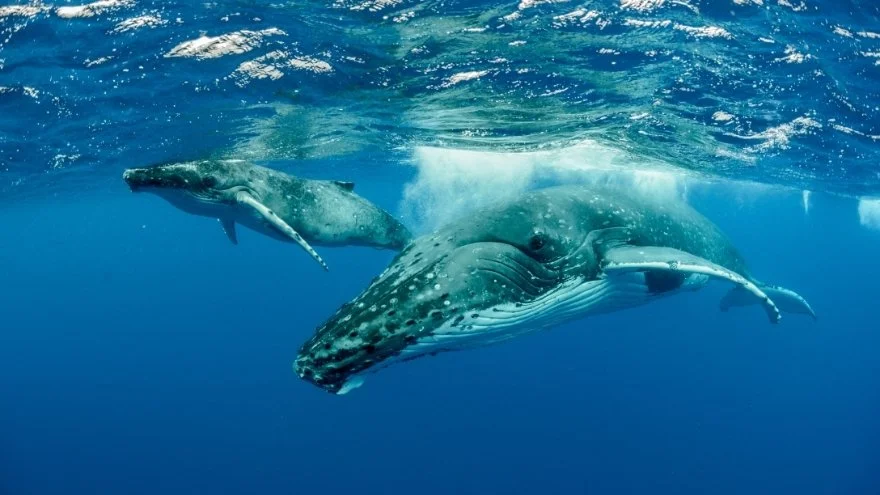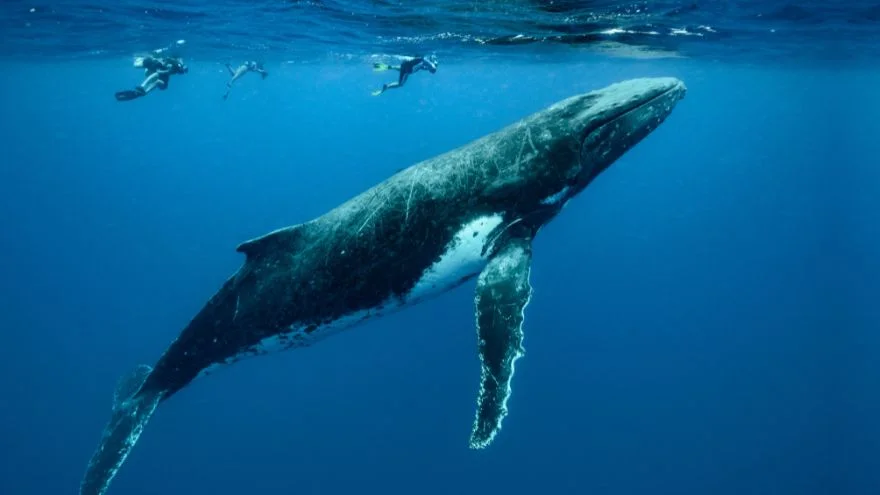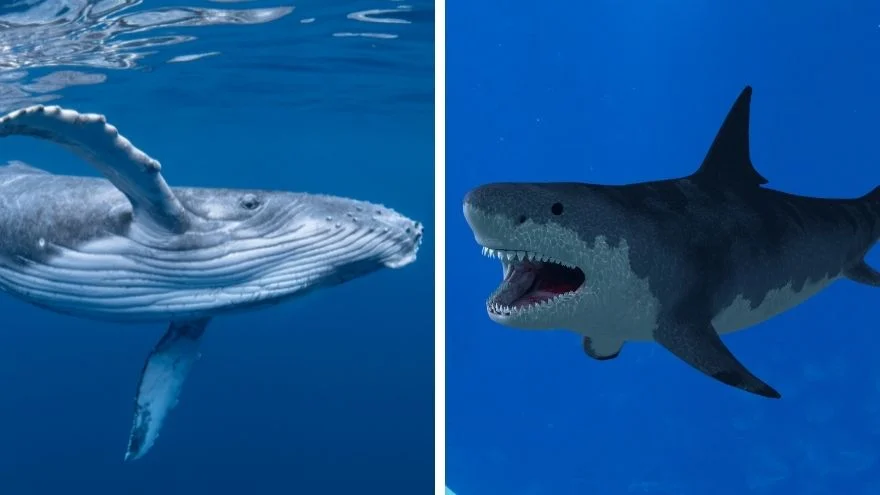Humans live an average lifespan of 71 years, which is like a drop in the bucket compared to the lifespans of other animals.
Some of the major causes of death in both juvenile and adult mammals include predation, diseases, and starvation, amongst many others.
But what about marine mammals like whales? What causes a whale to die? Do whales die of old age?
Although whales do not die directly from old age, they can succumb to death due to the effects of old age.
The lifespan of whales depends on their species, diet, geography, and how endangered they are.
Some major causes of whale deaths include beaching, bycatch, pollution, diseases, predators, etc.
Read on to discover more on the subject of whales’ lifespan and what causes them to die.
Do Whales Die of Old Age?
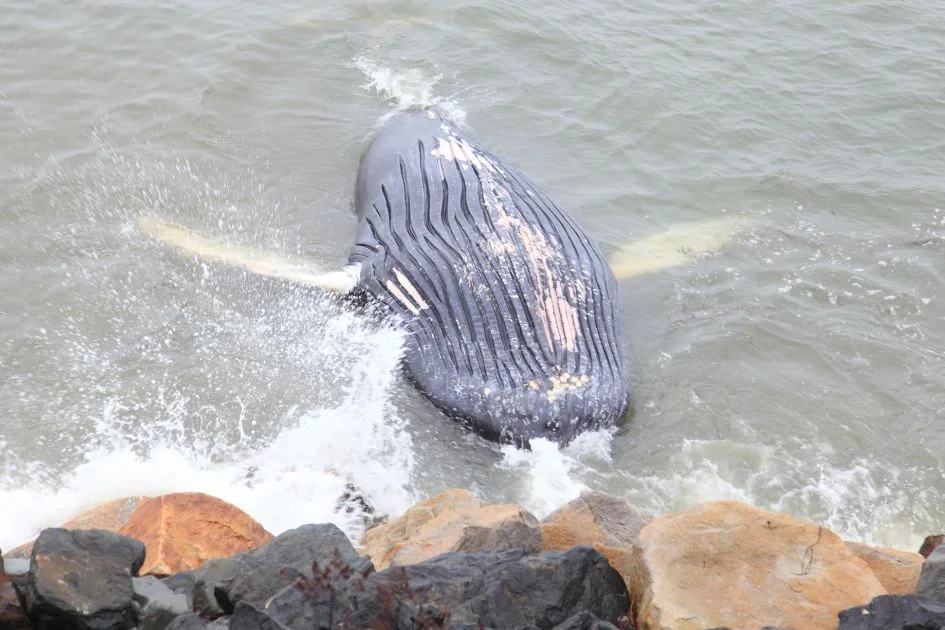
It is clear that whales, like all other living beings, grow old and, at some point, die.
But what separates whales from other living beings is that they are not known to die directly from old age.
Instead, their old age could cause secondary effects on the whale’s body, health, and behaviors. These secondary effects are what cause whales to die.
Essentially, whales do not die directly from old age but from the adverse effects of growing old.
How Long Do Whales Live?
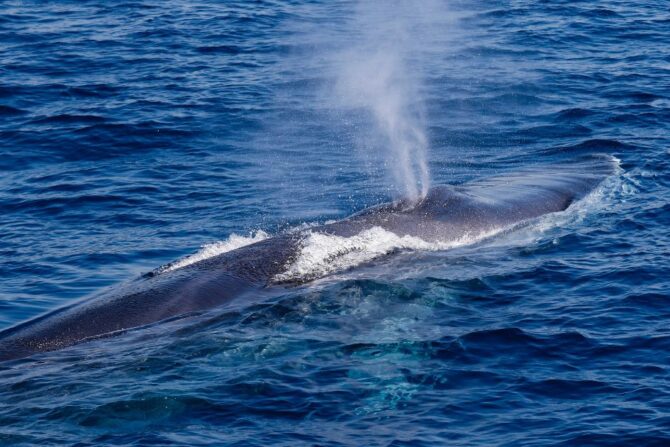
There are various subspecies of whales worldwide, and each has its average lifespan.
Some subspecies like the bowhead whale live far longer than other whale species.
Here’s a short list of the lifespans of various whale species.
- Bowhead whales have an average lifespan of 100 to 200 years. They have the longest lifespan of all marine mammals in the world.
- Beluga whales have an average lifespan of 40 to 60 years.
- Humpback whales have an average lifespan of 40 to 100 years.
- Fin whales have an average lifespan of 60 to 100 years.
- Minke whales have an average lifespan of 30 to 50 years.
- Sperm whales have an average lifespan of 60 to 80 years.
- Narwhal whales have an average lifespan of 40 to 60 years.
- Gray whales have an average lifespan of 50 to 70 years.
- Blue whales have an average lifespan of 70 to 90 years.
Essentially, the average whale lifespan isn’t a figure that anyone can easily summarize given the many different species of whales that live deep in the ocean.
The longest living whales are the bowhead whales, while the whales with the shortest lifespans are the minke whales.
Apart from species, several other factors could contribute to the total lifespan of a whale.
These factors include their diet, habitat, the level of endangerment they constantly face, and their lifestyle.
For example, because whales are very social animals, they might suffer emotional damage when they are in captivity and unable to interact with their kin.
This trauma might cause them to die faster than they would if they were in their natural habitat.
What Causes a Whale to Die?
Although it has been shown that whales do not die directly from old age, they are certainly not immortal.
There are several anthropogenic (pollution and environmental change) and natural causes of mortality in whales.
Natural Causes of Death in Whales
One of the major causes of death amongst whales is due to nature, diet, behaviors, and other marine animals that prey on them.
These natural reasons are not due to human intervention and hence, rarer than deaths caused by humans (anthropogenic causes).
Below are some of the natural causes of whale deaths:
1. Predators
Every animal in its habitat has a set of predators that they have to defend themselves from and preys they can feed on for food.
Despite their humongous size, the same can be said of whales too. Whale calves are usually the most prone to such predator attacks.
Other predators like killer sharks, polar bears, and even killer whales could attack small whale calves when they wander too far from their parent’s protection.
Although adult whales are less prone to such attacks, there have been a few cases where groups of predators have ganged up on the much larger whale and successfully killed it.
2. Injuries, parasites, and diseases
Like humans and other mammals, whales can also die from diseases and parasites.
If a whale is bruised or injured, the open wound could become infected with a parasite like Toxoplasma gondii.
Although it doesn’t directly kill the whale, this parasite could be very dangerous.
That is because the Toxoplasma gondii (a parasite commonly found amongst cats) weakens their immune system and makes them likely to contract other life-threatening diseases.
To get a glimpse of how dangerous the Taxoplasma gondii parasite is to whales, studies show that this parasite was responsible for over half of the deaths of beluga whales that resided in the St. Lawrence Estuary.
All these deaths were recorded within three short years; 2009 to 2012.
3. Starvation
An international study suggests that whales die of starvation in the eastern North pacific.
Some whales do not have a set location for feeding, so they would migrate to other feeding grounds.
During the process of migration, these whales might refrain from eating anything before they get to the next feeding ground.
If anything prevents them from getting to the feeding ground on time, the whales may end up starving to death.
4. Beaching
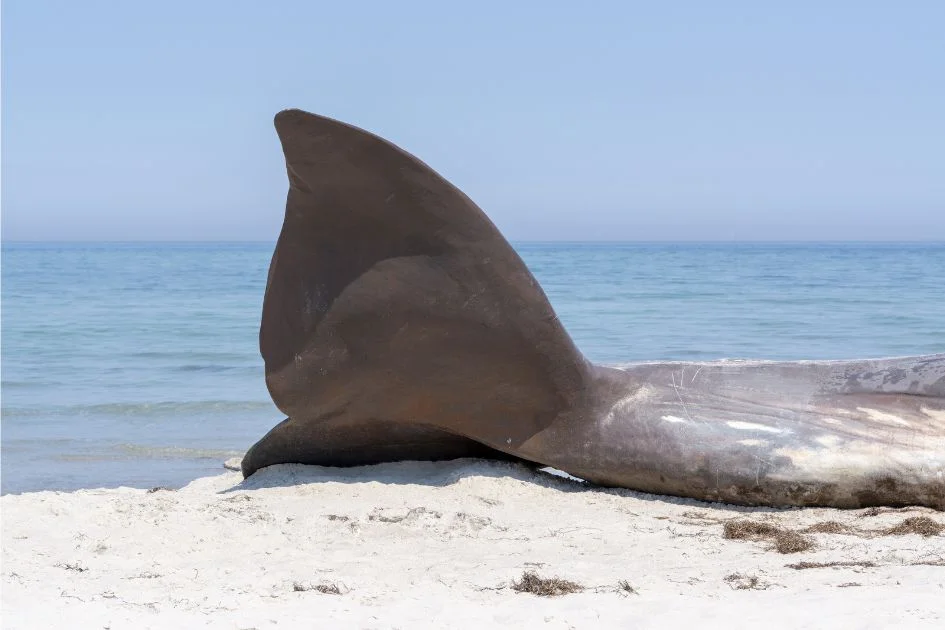
Apart from the reasons mentioned above, beaching is also another major natural cause of whale deaths.
Beaching is what occurs when whales — probably in search of food — get stuck on the shore and are unable to return to the sea.
Much of the weight of a whale is supported by the oceans they swim in.
When they are stuck on the shore, they are incapable of supporting themselves and that heavy weight could crush all their internal organs and lead to death within hours.
Anthropogenic Causes of Death in Whales
The leading cause of whale deaths worldwide is always somehow linked to some aspect of human activities.
Research makes it clear that humans were, directly or indirectly, the cause of 67% of whale deaths recorded between 1970 and 2009 in the Northwest Atlantic.
During this period alone, about 257 fin whales, 122 right whales, and over 470 humpback whales were recorded to have died.
Here are a few of the anthropogenic causes of whale deaths:
1. Bycatch
Of all the anthropogenic causes of whale deaths, the most dangerous is bycatch.
Reports have shown that about 300,000 Cetaceans (including whales, dolphins, and porpoises) are caught this way yearly.
Bycatch happens when marine animals become entangled in traps and nets that weren’t meant for them.
The animals would find it hard to detangle themselves. They would not be able to surface for a breath or dive back into the oceans to fulfill other necessary biological needs.
2. Pollution
Another leading cause of death for whales due to human activities is pollution—sea or air pollution.
When waste from human activities is transferred to the oceans, they pollute the oceans and become harmful to the aquatic life.
Examples of chemical pollutants that might affect whales include polybrominated diphenyl ethers (PBDEs) and polychlorinated biphenyls (PCBs).
Constant exposure to these pollutants can lead to cancerous tumors and even starvation.
There have been several records of whales dying due to their belly full of plastic waste, thus, preventing them from properly feeding.
3. Ship strikes
Although whales also suffer from predator attacks, most of these attacks are targeted at young whales. The adult whales can usually swim about with little fear of any predator attack.
This lack of fear might prevent them from retreating when a large ship comes close to them. Due to this, lots of whales are hit and injured by large ships every year.
These collisions might cause the whales serious damage, which they are unable to recover from, leading to their demise.
4. Hunting
Although hunting for whales (whaling) has been regulated in most countries, some countries like Japan, Norway, and Iceland still permit it.
This leads to over a thousand whales being killed yearly for their oil and meat.
The whales are hunted with harpoons. Once the whale has been sported, the fisherman attacks it with the harpoon. The harpoon injures the whale and causes it to go frantic in pain.
After dragging the boat the harpoon came from for some hours or even days, the whale might grow tired and succumb to death.
What Happens After a Whale Dies?
Like most living beings out there, when whales die, their tissues begin to decompose. The decomposition could cause the release of gases that make the carcass of the whale float on the ocean surface.
Sometimes, this carcass could be carried ashore by the powerful tides the whale is now too dead to resist.
On the other hand, if the whale dies in deep waters, its corpse sinks about 3,000 feet into the ocean’s depths. This phenomenon is usually referred to as “whale fall.”
This phenomenon is also extremely beneficial to the communities of organisms that live in such depths. That is because no microorganism can scavenge on corpses at those depths.
The dead whale serves as nutrients for the marine organisms that reside at such depths.
Organisms such as lobsters, crabs, shrimps, isopods, sleeper sharks, etc., can feast on the dead whale for decades.
These creatures are, in turn, devoured by other creatures, starting an ecosystem’s lifecycle that never stops.
FAQs
Do whales drown when they get old?
There has been several debates on whether a whale drowns and dies when they get old.
The fact is that if an elderly whale becomes disable or gets very sick, it may be unable to surface to brethe. Thus, it drowns and dies.
In this case, the cause of death would be drowning and not old age.
Wrap Up
Despite how much is known about marine mammals, there is still a lot of mystery on whether whales die, what causes their death, and if they die of old age.
The short, uncomplicated answer is that whales do not die directly from old age but due to various adverse effects that come with being aged.
There are a plethora of causes of death of these large sea creatures including beaching, hunting, pollution, bycatch, predators, starvation, etc.
Check out these interesting articles:
Featured Image Credit: UWPhotog / Getty Images Pro
